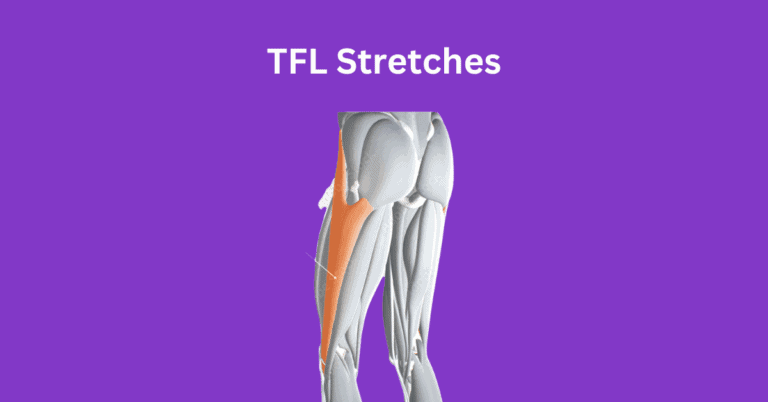The Cure for Extreme Toothache That’s Interrupting Your Sleep

If you are reading this article, you probably have experienced the unwelcome arrival of a toothache.
The throbbing aches can intensify during nighttime, when you are not distracted by any activities, making it near impossible to fall asleep.
Nighttime toothaches rob us of our rest and impact our overall well-being and daily functioning.
Stress can gradually build up from this and ruin your following day before it even begins.
In this article, I will dive into the root of the menacing toothaches and provide effective strategies to combat the pain.
The Basics About Toothaches
Toothaches can stem from various underlying causes, each with its own unique set of symptoms. Here are some common culprits behind toothaches:
Dental Decay
The most general cause of toothaches is due to dental decay or more widely known as cavities.
Your mouth is filled with bacteria and some of them produce acids by consuming sugars and carbohydrates from the food we eat.
These acids can damage the outer layer of the tooth called enamel. Gradually holes start forming on the enamel which creates cavities and triggers sharp or throbbing pain.
Grinding Of The Teeth
Some individuals have the unconscious habit of grinding their teeth also known as bruxism, which can happen during the day or at night.
Constant gnashing puts excessive force on the teeth which can result in worn enamel, tooth fractures, and tooth sensitivity
Dental Sensitivity
Tooth sensitivity is characterized by discomfort or pain when exposed to certain stimuli, such as hot or cold food and beverages, sweet or acidic substances, or cold air.
Sensitivity may arise from worn enamel, exposed tooth roots, gum recession, or cavities.
Dental Abscess
This is a serious bacterial infection that attacks within the teeth, gums, or bone surrounding a tooth.
It causes a build-up of pus within those areas bringing in throbbing pain.
Common triggers for toothaches at night
Sleeping at a specific position usually horizontally can increase the blood flow towards your head. Therefore it puts added pressure onto your teeth~ heightening the sensitivity of your tooth nerve endings, leading to intensified pain.
Room temperature can play a role as well. If you are suffering from existing dental conditions, breathing in cold air while sleeping can provoke toothache discomfort.
Furthermore, overstressing during the day can contribute to teeth clenching and grinding. These actions can exacerbate existing toothache issues and cause additional discomfort during sleep.
Relief Measures
If the pain gets overbearing, seek professional dental care, however there are relieving measures you can try at home to alleviate the discomfort.
Salt Water Rinse
Rinsing the mouth with warm salt water can help kill bacteria in the mouth due to its mild antiseptic properties. By reducing the bacterial load, it can promote healing and prevent further infection.
Additional salt water has anti-inflammatory properties as salt includes minerals like iron, zinc, and magnesium~ it works together to reduce inflammation and swelling around the affected tooth or gums.
Due to these effects, the salt water rinse will provide a soothing effect on the tissues in your mouth, helping with any irritation and discomfort.
Here’s a quick guide:
- Dissolve half a teaspoon of salt in 240 ml of warm water. Ensure that the water is warm but not hot.
- Take a mouthful of the solution and swish it around your mouth, making sure to reach the affected area for about 30 seconds to a minute, then spit it out. Be careful not to swallow the solution.
- You can repeat the saltwater rinse two to three times a day.
Chewing Cloves
Cloves contain a natural chemical called eugenol which has analgesic and antiseptic properties that work to kill off harmful bacteria.
Thus chewing them throughout the day can help alleviate lingering pains and keep your teeth healthy.
Here’s a quick guide
- Buy whole cloves from your local grocery stores, the fresher the better.
- Take 1 or 2 whole cloves and place them near the affected tooth or area of pain. Gently bite down on the clove to release its oils. Hold it in place against the tooth for a few minutes, allowing the juices to reach the affected area.
- After a few minutes, remove the clove and rinse your mouth with warm water.
Over The Counter Medication
Over-the-counter medications are another great option for ache relief. Some common medications are:
- Paracetamol or Acetaminophen, depending on where you’re from
- Nonsteroidal anti-inflammatory drugs eg, ibuprofen and naproxen.
- Topical oral gels eg, Orajel and benzocaine gel
Before taking the medication consult with a healthcare professional to find out the recommended dosage and get aware of any interactions with other medications that you may be taking.
Tea Tree Oil
Tea tree oil includes a compound called terpinen-4-ol, which also exhibits antibacterial properties.
Here’s a quick guide:
- Put 2-3 drops of tea tree oil in a cup of warm water.
- Take a gulp of the solution and swirl it around your mouth for 30 seconds.
- Spit out the water. Repeat the process until the solution is finished.
Practices to Prevent and Manage Nighttime Toothaches
Nighttime toothaches can be disruptive to your sleep and overall well-being. Fortunately, there are several practices you can follow to help prevent and manage toothaches during the night. Here are some tips:
Maintain A Good Oral Hygiene
Keeping good oral hygiene is probably the most important when it comes to managing your aches.
Absolutely ensure you brush your teeth twice/day~ morning and night for 2 minutes. Pay attention to all surfaces of the teeth including the front, back, and chewing surfaces.
Choose a soft-bristled toothbrush over the harder ones, as these are more gentle on your gums and teeth, thus preventing damaging your enamels.
It’s hard to reach in between your teeth with a toothbrush, therefore make sure you incorporate flossing as part of your oral hygiene.
Don’t forget to clean your tongue using a tongue scraper gently. Harmful bacteria don’t only live in your teeth and gum but also the tongue.
Finally, at the end use a mouthwash as a final touch. Mouthwash is optional if you follow all of the steps above.
Avoid Trigger Foods And Beverages
There are certain foods and beverages that can aggravate tooth sensitivity.
Acidic foods & drinks can wear down the enamel on your teeth over time and cause sensitivity to build up.
Reduce the overall sugary foods & drinks. Sugars are what certain bacteria consume and produce acids as the byproducts~ leading to tooth decay down the line.
Alcohol can cause dehydration, leading to a decrease in saliva production.
Salvia actually plays a role in neutralizing acids from the food you eat. Thus lack of salvia will increase the acidic pH in your mouth.
Regular Dental Check-Ups
It’s hard to gauge the health of your teeth by yourself. Even if you are not suffering from any pain, your teeth could be not in the best shape.
Therefore a regular check-up with your dentist is vital to get a full picture.
Even with regular brushing and flossing, plaque and tartar can build up on your teeth over time. Professional dental cleanings during check-ups help remove this buildup.
Another benefit is you can receive a tailored plan specific to your oral health requirements.
When to Seek Professional Dental Care?
If the pain is unbearable and does not go away even after trying the home remedies, it could be a sign of serious underlying dental issues that require professional evaluation and treatment.
The treatment you get will be dependent on your situation, some common treatments are:
Dental Fillings: For cavities or decay, dental filing will be the most likely treatment. The infected area is removed and it’s then filled with tooth-colored composite material, restoring it back to its normal structure.
Root Canal Therapy: If you are dealing with inflamed pulp, a root canal might be the option. This procedure involves detaching the infected pulp while disinfecting & cleaning the root canals and sealing them with a filling material.
Dental Crowns: In cases where a tooth is significantly weakened or fractured, a dental crown may be recommended. A crown is a custom-made cap that covers the entire visible portion of the tooth, providing strength, protection, and relief from pain.
Gum Disease: For gum disease-related toothaches, the dentist will focus on deep cleaning procedures such as scaling and root planing, antibiotic therapy, or gum surgery to remove infected tissue and promote gum healing.
Dental Extraction: If a tooth is severely damaged, or decayed beyond repair, then extraction may be necessary. This involves the complete removal of the tooth from its socket. Afterward, the dentist will provide recommendations for tooth replacement options, such as dental implants.
The appropriate treatment will be determined after a thorough examination and evaluation.
FAQ
Does Brushing Teeth Help With Toothaches?
Yes absolutely, keeping good brushing habits twice a day, prevents the build-up of bad bacteria.
You should also aim to incorporate flossing after brushing your teeth~ to make sure you clean the areas where the toothbrush couldn’t reach.
How To Stop The Tooth From Hurting?
To reduce the pain you can try salt water rinse, chewing on cloves, Otc medication, and tea tree oil rinse.
If these are unsuccessful, book an appointment with your local dentist and they can provide you with appropriate solutions
Why Does My Toothache Come And Go?
This can be due to certain things triggering your aches. Avoid consuming an abundance of sugary & acidic foods and drinks, while also reducing your alcohol intake.
It can be tough to pinpoint the right triggering factor, therefore consult with your dentist to get to the root of the problem.
Conclusion
Nighttime toothaches are horrible, it can keep you awake for the whole night.
Fortunately, there are various home remedies available to assist with alleviating the discomfort and might even cure it.
To manage your aches, maintain good oral hygiene, avoid triggering foods & beverages, and ensure you get a regular check-up with your local dentist.
Depending on the severity of your condition, home remedies might be ineffective, in which case you should seek professional advice, as dental surgery might be needed.


